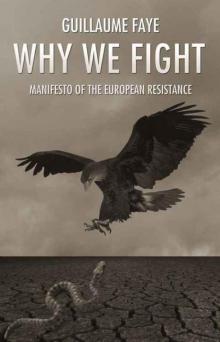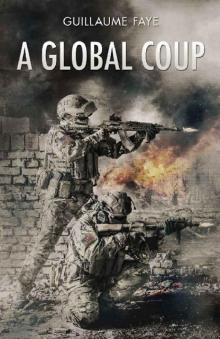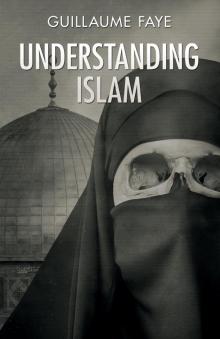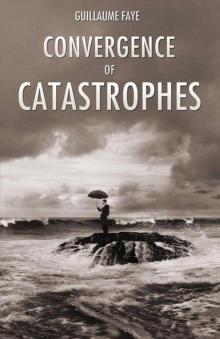Why We Fight, page 9




Free trade and a single planetary economy have weakened economies everywhere, profoundly hurting European interests and creating economic situations that can’t possibly last. The autarky of great spaces, along with a ‘two-tier’ economy, are a revolutionary response to the impending catastrophe of global free trade.
(see economy, organic; economy, two-tier; liberalism, managerial; Eurosiberia)
B
Belief in Miracles
The general prejudice inherent to egalitarian and humanitarian utopias, as well as the philosophy of progress — which holds that ‘one can have everything at the same time’ and that reality is no obstacle.
We can have both guns and butter. One imagines, as liberals do, that an ‘invisible hand’ is at work spontaneously re-establishing a harmonious equilibrium. Here are some examples:
Belief in the dogma that unlimited economic development is possible in every country without causing massive pollution and without ecologically disastrous consequences. This is the illusion of infinite development.
Belief that a permissive society doesn’t lead to a social jungle, and that one can have both libertarian emancipation and self-disciplined harmony. Hence, the dramatic shipwreck of public education, whose violence, insecurity, ignorance, and illiteracy stem from pedagogical illusions that banish all sense of limits.
Belief that one can maintain social security and medical assistance to the elderly in a period of demographic decline by remaining committed to a system that fairly distributes aid. This is the illusion that comes from the Communist conception of solidarity.
Belief that the mass immigration of aliens is compatible with ‘the values of the French Republic’ and the preservation of European peoples and nations; the belief that Islam can be secularised and assimilate republican values. Belief that the active population can be regenerated by importing immigrants, even though most of them are unskilled welfare recipients. Belief that it’s possible to normalise the status of clandestine immigrants, that they can be integrated, and that in this way one can avoid the arrival of new immigrant waves, even though the reverse is everywhere obvious. This is the illusion of immigration as a benefit.
Belief that aliens can be assimilated and integrated, as they defend and maintain the specificities of their original culture, memories, and mores. This is the communitarian illusion, one of the most noxious of all, particularly dear to our ‘ethnopluralist’ intellectuals.
Belief that cancelling the Third World debt will enable it to economically ‘take-off’ and avoid future debt. This is the Third World illusion.
Belief that nuclear power can be abandoned and replaced with oil and coal plants, while reducing carbon emissions. This is the ecological illusion.
Belief that a world economy based on short-term speculation, a generalised indexation of computerised stock markets, and the replacement of monetary policy with the hazards of financial markets promises new and lasting growth. This is the illusion of the new economy.
Belief that the reinforcement of democracy and ‘republican values’ will eradicate ‘populism’, that is, the direct expression of the people’s will.
*
The list could be extended. In each of these cases, the belief in miracles is explainable by the hapless optimism that comes from the secular religion of egalitarian progressivism; but it also comes from the fact that the dominant ideology, being at an impasse, doesn’t dare to deny its dogmas and make drastic revisions, clinging as it does to the idea that there ‘will be no storm’ and that everything is explainable by the sophisms of its fake experts, whose inevitable conclusion is that all will turn out for the best, that things will continue to improve, and that the situation is well in hand. It’s a bit like the driver, running a red light at a hundred kilometres per hour, who explains that the faster he goes, the less time he will be in the intersection and thus the less risk he has of collision.
(see convergence of catastrophes; progress, progressivism)
* * *
Biopolitics
A political project oriented to a people’s biological and demographic imperatives.
Biopolitics is today demonised everywhere in Europe, for it implicitly supports the idea of a people’s biological longevity in history, without limiting itself simply to its ‘public health’. Nothing could be more politically incorrect. Biopolitics is a policy devoted to the long-range preservation and improvement of a people’s biological germen. Biopolitics is premised on the principle that a people’s biological health is essential to its survival and social harmony.
Biopolitics includes family and population policy (totally abandoned today), restricts the influx of aliens (who threaten a people’s biological-anthropological core), and addresses issues of public health and eugenics — that is, the improvement of the people’s genetic quality. Today, both China and India actively practice biopolitics.
Biopolitics possesses considerable techno-scientific means (genetic engineering) to compensate for Europe’s weak demographics. There’s little question that these will pose grave problems — but lacking a ‘natural’ solution, how else are they to be solved? In any case, we need to approach the issue from a political rather than an ‘ethical’ perspective. Techno-science proposes, politics disposes. In awaiting a future biopolitics — a matter of some urgency for Europeans — it will be necessary to address two major issues: reinvigorating the European birth-rate and reversing the Third World invasion.
(see eugenics)
* * *
Born Leader
A creative personality imbued with a historical vision of the world.
To be historically fertile, a political movement or regime needs a leader, that is, a head. Even if elected or chosen, the leader is nevertheless predestined to the divine spark, if he’s not already genetically imbued with it. History is the fertilisation of a people’s passive soul by the active soul of its born leaders.
Man or woman, the born leader is a recurring and necessary figure in history — a notion rejected by Marxist egalitarians (attached to their dogmas about the ‘masses’), though they too depend on such leaders.
The born leader brings the danger of despotism, but of destiny as well. History refuses to conform to the vision of our humanitarian egalitarians. The born leader is a man of storms, but also a man of extraordinary creativity. He appears where he is not expected, whatever the ideology he animates. He seizes hold of reality and transforms it. He seduces the people, like a snake paralyses the bird. He is history’s surprise, whether he’s divine or dramatic and bloody.
The born leader is an indispensable, as well as a tragic figure. He can lift up and liberate (Charles Martel, Joan of Arc, Mustafa Kemal,[106] etc.), doing so like a tyrant (Lenin, Stalin, Mao . . .) or a conqueror (Alexander, Napoleon, Abd-el-Rahman[107] . . .). He’s an inescapable given in the lives of a people faced with constant dangers or in pursuit of a great ambition.
*
In our decadent, nearly exhausted civilisation, born leaders no longer appear because the natural elites have been turned away from politics and no longer serve the people (confused with the ‘state’) — the people has been abandoned to careerist functionaries. In the present situation, only a tragic crisis will permit a born leader to emerge. He alone can cut the Gordian knot of what historically appears as an inextricable situation. Robert Steuckers thus writes, in reference to Carl Schmitt, that the latter ‘wanted to restore the personal dimension of power because this personal dimension is alone capable of responding to a state of emergency. Why? Because the born leader can act more rapidly than slower procedural mechanisms’.[108]
*
The born leader accordingly has a dictatorial character, but in the positive sense. A dictator is not an oppressive tyrant, but one who ‘dictates’, who cuts through and saves things in a state of emergency. The born leader appears thus as a people’s supreme protector, disinterested, the ultimate symbol of true democracy, ‘populist’ democracy, in the Hellenic political-philosophical sense.
The born leader is he who both sets a people in motion and protects its ancestral character, its identity. He is the one who breaks the system for the sake of a futuristic dynamic that paradoxically preserves the archaic, that soul of a civilisation. He is both Agitator and Dictator.
The born leader is a figure of individualism, in the positive sense, as in ‘altruistic individualism’. In a given period, at a tragic or fertile point in history, he crystallises and formulates the unconscious will of the people. Muhammad was probably the greatest born leader of all time, having, in a few decades, set the world ablaze with his religious and warrior doctrine, which, today, constitutes for Europeans, as it does for many other peoples, the greatest of dangers — the principal enemy — that which is to be contained and hurled back.
Europe has need for born leaders today, for she will be saved neither by intellectuals nor politicians nor entrepreneurs, but only by those embodying the People’s Soul.
Remember, though: there are no generals without an army — no chief without a tribe.
(see aristocracy; democracy; elite; personality, creative)
* * *
Bourgeoisism
The mental characteristics of the petty bourgeoisie, extended to the whole of modern society irrespective of social class.
Bourgeoisism designates the negative traits of the bourgeois spirit, minus the entrepreneurial mentality of the great bourgeoisie, which today is in decline. Opposing the popular spirit, like it opposes the aristocratic spirit, bourgeoisism dominates our market society, with its morality of self-interest, its individualist pursuit of security and immediate well-being, its susceptibility to ephemeral fashions, its refusal of risks, its passive and conspicuous consumption, its conformity to the reigning doctrines, its concern with maintaining politically correct appearances, its total lack of patriotism and ethnic consciousness, its cultural snobbery, its spirit of calculation, its compromising conception of human relations, its narcissism, the preponderance of money in its scale of values, its indifference to communal solidarity, its superficial humanitarianism, its insensibility to the sacred and poetic sentiments, and its aesthetic inaptitude, etc. Bourgeoisism has even abandoned its earlier familial spirit, with its sense of generational continuity.
The modern petty bourgeoisie or middle class dominating present-day society tries to be ‘trendy’, but betrays an extraordinary conformity. It’s both the target and the principal actor in the ideological/intellectual establishment of the reigning soft totalitarianism.
(see economism)
C
Chaos, Ethnic
A historical situation in which a people or civilisation loses its ethnic basis due to the mass immigration of aliens.
Ethnic chaos was a factor in the decomposition of the Roman Republic and Empire, Pharaonic-Egyptian civilisation, and many ancient Greek cities. Europe is presently in the grip of a colonising settlement by overseas peoples. A civilisation disappears once it loses its original ethnic basis. It becomes a patchwork quilt in which any idea of city, community, and destiny is impossible.
Ethnic chaos signals the pure and simple disappearance of a people and a civilisation — and of true democracy — as all the classical Greek philosophers warned.
An ethnically heterogeneous population — a kaleidoscope of communities — becomes an anonymous society, without soul, without solidarity, prone to incessant conflicts for domination, to an endemic racism (‘every multi-racial society is a multi-racist society’) — ungovernable because there’s no shared vision of the world. Ethnic chaos is an open door to tyranny.
In the name of multi-racialism, capitalism and democracy have made ethnic chaos part of their program. Men are stripped of their attachments and remade as consumers, each interchangeable with the other, each without an identity. But this is stupid. Man never actually loses his memory or ancestral identity. A society of ethnic chaos leads in the long run not to prosperity, harmonious individualism, or republican rule, but to political and social disorder. We’re now catching the first glimpses of this chaos. From it, there will perhaps come the post-chaos — that is, regeneration — a return to homogeneity.
(see culture, civilisation; communitarianism; colonisation; germen; philia)
* * *
Chaos, post-Chaos
Chaos is that state of disorganisation and anarchy affecting a collectivity of any sort, once it’s beset by catastrophe. The post-chaos is that phase when a new order is reconstructed on the basis of a revolutionary, metamorphic logic.
It’s the eternal cycle of life, death, and rebirth, as expressed in Nietzsche’s theory of the eternal return of the identical,[109] as well as in René Thom’s mathematical theory of catastrophes.[110] The society we know can’t be fixed, the system can’t be saved. This is the illusion of every conservative tendency. The sole solution to the present situation will come from chaos — from civil war, economic depression, etc. — that overthrows established mentalities and makes acceptable and indispensable that which was previously unimaginable. Only in situations of chaos are the given variables changed and does it become possible to establish another order — the post-chaos. Only in crisis, then, will a solution be found. To construct a new home, it’s first necessary that the old one collapses. It’s not a pessimist but a realist who sees this.
(see convergence of catastrophes; interregnum)
* * *
Circulation of Elites[111]
An expression of the sociologist Vilfredo Pareto[112] to designate the process by which elites are renewed, new blood brought in, and incompetence shed.
A people that does not renew its elites sinks into a ‘blocked society’. A sclerosis of the elites is a very French malady, for in France the privilege of acquired advantage has always kept good company with a paralysing egalitarianism. Both before and after the Revolution. . . The circulation of elites requires a principle of rigorously selecting the best and most deserving, in a word, it’s an ‘intelligent inegalitarianism’ founded on justice. The selection of elites, like the notion of aristocracy, is based on principles of freedom and competition: ‘The best wins’.
Social egalitarianism rejects the principle of selection (the great legacy of May 1968) and instead favours ‘positive discrimination’ and quotas for ethnic groups, which leads not to social justice, but to the promotion of mediocrity.
For thirty years, our system of national education has abandoned principles of selection and discipline, blocking the democratic process by which elites circulate and by which the best from the unfavoured classes are recruited into the ruling classes. In effect, the public school system has been massively devalued and is no longer able to fulfil its role in facilitating social advancement. Only money now enables access to a quality education. This anti-selective egalitarianism leads to corporatism, nepotism, and the blocked circulation of elites.
(see aristocracy; competition; democracy; meritocracy; selection)
* * *
Civil War, Ethnic
The grave and foreseeable confrontation between native Europeans and the alien colonisers, mainly of Afro-Maghrebian origin — a confrontation that threatens to break out in France and Belgium early in the Twenty-first century.
In Europe, especially in the two above-mentioned states, we have, in respect to Islam and its alien populations, passed from the stage of friction and minor delinquency to the stage, beginning in the 1990s, of pre-civil war, linked to the aliens’ territorial and demographic conquests.
Alas, it’s only the outbreak of a real civil war that will resolve the present problems of colonisation, Africanisation, and Islamisation — the greatest tragedy in European history and one which completely escapes the perspicacity of her ‘elites’, who are either blind or enemy collaborators.
Ethnic civil war is the sole means of treating a problem ‘hotly’ that can never be resolved ‘coldly’, within the state’s system of law or through its democratic procedures. Make no mistake: I’m not calling for war, but I consider it inevitable, something almost automatic. Solutions based on ‘rational and peaceful coexistence’, as advocated by our communitarians, belong to the realm of infantile belief, distinct to dreamy, rationalising intellectuals, who know nothing of sociology or history.
It’s only when their backs are against the wall, faced with an unavoidable emergency, that people find solutions that in other times are unthinkable. It was through armed reconquest that Spain threw off her Arab-Muslim occupation. But this took time — though, with history’s present acceleration, it will probably take less now. The important thing is to be prepared for the inescapable.
Conditions for civil war are still not quite ripe, given the apathy of Europe’s anaesthetised population (anaesthetised by market society and various guilt-inducing ideologies). These conditions will soon ripen:
1. Once the state starts falling into the hands of Afro-Maghrebian and Muslim ‘communities’. This is already beginning to happen, as municipalities, followed by regional legislatures, allow the ‘immigrant vote’, and local, eventually national, powers fall to the colonisers.
2. Once the degradation of the people’s economic situation (provoked in part by the ageing population) is compounded by a conspicuous increase in Afro-Maghrebian criminality, as it reaches insupportable levels and is linked to more and more pronounced alien conquests of the national territory. One never revolts when the shopping carts are full.



















